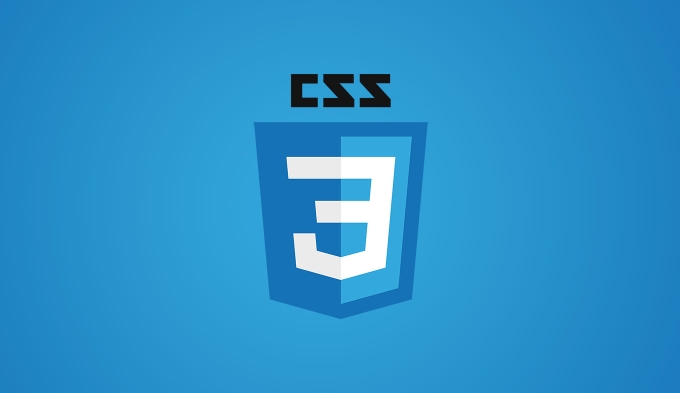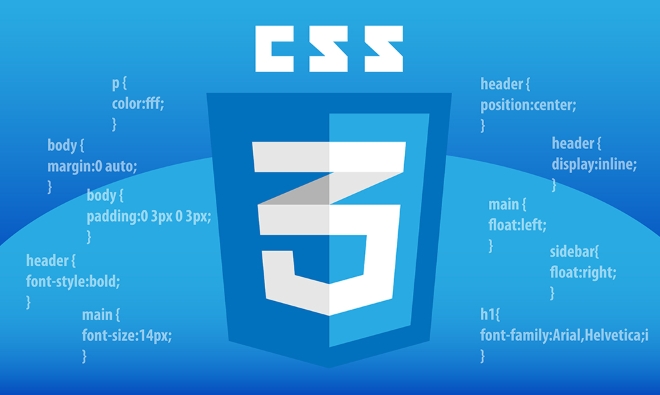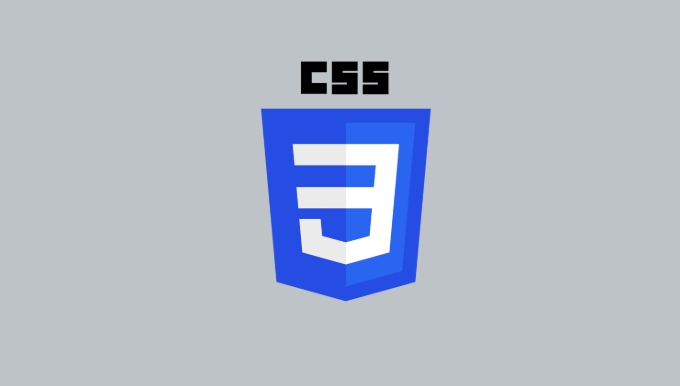Use CSS clip-path to create non-rectangular shapes in the browser without additional images or complex SVG; 2. Common shape functions include inset(), circle(), ellipse() and polygon(), where polygon() implements custom shapes by defining coordinate points, which is suitable for creating creative designs such as dialog bubbles; 3. clip-path can achieve dynamic effects through CSS transition or keyframe animation, such as circle expansion during hovering, but only supports inter-shape animations of the same type and number of vertices; 4. Pay attention to responsiveness and accessibility to ensure that the content is still available when not supported, the text is readable, avoid excessive cropping, and control the number of polygon vertices to optimize performance. At the same time, it is necessary to know that the cropping area still occupies layout space; 5. clip-path is a lightweight pure CSS solution suitable for designs that break through conventional layouts, such as diagonal areas, jagged dividers, custom image masks, etc.

Using CSS clip-path allows you to create visually striking, non-rectangular shapes directly in the browser without relying on extra images or complex SVG masks. It's a powerful tool for cutting out parts of an element—like images, divs, or backgrounds—revealing only the clipped area. Here's how to use it effectively for creative designs.

1. Understanding the Basics of clip-path
The clip-path property defines a region of an element to display. Anything outside the defined area is hidden. You can use predefined shapes or custom polygons.
Common shape functions:

-
inset()– clips using a rectangle (offsets from edges) -
circle()– creates a circular clip -
ellipse()– creates an elliptical shape -
polygon()– allows full control with multiple points
Example:
.clipped {
clip-path: circle(50% at 50% 50%);
/* Creates a perfect circle centered in the element */
}This is great for turning a square image into a circular profile, for instance.

2. Creating Custom Shapes with polygon()
For more creativity, polygon() is your go-to. You define a series of x/y coordinates to form a shape.
Each point is a percentage (recommended for responsiveness) or pixel value.
Example: A speech bubble-like shape
.speech-bubble {
clip-path: polygon(
0% 0%, /* top-left */
100% 0%, /* top-right */
100% 70%, /* right-middle */
70% 70%, /* inner-right */
70% 100%, /* bottom-right */
50% 80%, /* tail tip */
30% 100%, /* bottom-left */
30% 70%, /* inner-left */
0% 70% /* left-middle */
);
}This creates a rectangle with a triangular "tail" at the bottom—perfect for toolstips or chat UIs.
Tips:
- Use online tools like Clippy to visually generate
clip-pathvalues. - Test in-browser with DevTools to tweak coordinates.
3. Animating clip-path for Dynamic Effects
You can animate clip-path using CSS transitions or keyframes—great for hover effects or loading reveals.
Example: Expand from center on hover
.box {
clip-path: circle(10% at 50% 50%);
transition: clip-path 0.6s ease;
}
.box:hover {
clip-path: circle(100% at 50% 50%);
}This creates a smooth "reveal" effect, useful for image galleries or hero sections.
Note:
- Only animatable between shapes of the same type and number of points (eg, polygon to polygon with same vertex count).
- For complex animations, consider using SVG
<clippath></clippath>with SMIL or JavaScript.
4. Responsive and Accessible Considerations
While clip-path is widely supported (modern browsers), always test fallbacks.
- Fallback: Ensure content remains usable if clipping isn't applied.
- Text inside clipped elements should still be readable—avoid overly aggressive clipping.
- Mobile performance: Complex polygons may impact rendering; keep vertex count reasonable.
Also, remember that clipped areas are not removed from the layout—they're just hidden. The element still occupies full space unless you adjust layout separately.
Using clip-path opens up creative possibilities: diagnostic sections, zigzag dividers, custom image masks, and interactive reveals. Start simple with circles and insets, then experiment with polygons. With practice, you can design unique UI components without extra assets.
Basically, it's a lightweight, CSS-only way to break out of the box—literally.
The above is the detailed content of How to use CSS clip-path for creative shapes?. For more information, please follow other related articles on the PHP Chinese website!

Hot AI Tools

Undress AI Tool
Undress images for free

Undresser.AI Undress
AI-powered app for creating realistic nude photos

AI Clothes Remover
Online AI tool for removing clothes from photos.

Clothoff.io
AI clothes remover

Video Face Swap
Swap faces in any video effortlessly with our completely free AI face swap tool!

Hot Article

Hot Tools

Notepad++7.3.1
Easy-to-use and free code editor

SublimeText3 Chinese version
Chinese version, very easy to use

Zend Studio 13.0.1
Powerful PHP integrated development environment

Dreamweaver CS6
Visual web development tools

SublimeText3 Mac version
God-level code editing software (SublimeText3)
 How to use PHP to build social sharing functions PHP sharing interface integration practice
Jul 25, 2025 pm 08:51 PM
How to use PHP to build social sharing functions PHP sharing interface integration practice
Jul 25, 2025 pm 08:51 PM
The core method of building social sharing functions in PHP is to dynamically generate sharing links that meet the requirements of each platform. 1. First get the current page or specified URL and article information; 2. Use urlencode to encode the parameters; 3. Splice and generate sharing links according to the protocols of each platform; 4. Display links on the front end for users to click and share; 5. Dynamically generate OG tags on the page to optimize sharing content display; 6. Be sure to escape user input to prevent XSS attacks. This method does not require complex authentication, has low maintenance costs, and is suitable for most content sharing needs.
 PHP creates a blog comment system to monetize PHP comment review and anti-brush strategy
Jul 25, 2025 pm 08:27 PM
PHP creates a blog comment system to monetize PHP comment review and anti-brush strategy
Jul 25, 2025 pm 08:27 PM
1. Maximizing the commercial value of the comment system requires combining native advertising precise delivery, user paid value-added services (such as uploading pictures, top-up comments), influence incentive mechanism based on comment quality, and compliance anonymous data insight monetization; 2. The audit strategy should adopt a combination of pre-audit dynamic keyword filtering and user reporting mechanisms, supplemented by comment quality rating to achieve content hierarchical exposure; 3. Anti-brushing requires the construction of multi-layer defense: reCAPTCHAv3 sensorless verification, Honeypot honeypot field recognition robot, IP and timestamp frequency limit prevents watering, and content pattern recognition marks suspicious comments, and continuously iterate to deal with attacks.
 What are common CSS browser inconsistencies?
Jul 26, 2025 am 07:04 AM
What are common CSS browser inconsistencies?
Jul 26, 2025 am 07:04 AM
Different browsers have differences in CSS parsing, resulting in inconsistent display effects, mainly including the default style difference, box model calculation method, Flexbox and Grid layout support level, and inconsistent behavior of certain CSS attributes. 1. The default style processing is inconsistent. The solution is to use CSSReset or Normalize.css to unify the initial style; 2. The box model calculation method of the old version of IE is different. It is recommended to use box-sizing:border-box in a unified manner; 3. Flexbox and Grid perform differently in edge cases or in old versions. More tests and use Autoprefixer; 4. Some CSS attribute behaviors are inconsistent. CanIuse must be consulted and downgraded.
 How to build a PHP Nginx environment with MacOS to configure the combination of Nginx and PHP services
Jul 25, 2025 pm 08:24 PM
How to build a PHP Nginx environment with MacOS to configure the combination of Nginx and PHP services
Jul 25, 2025 pm 08:24 PM
The core role of Homebrew in the construction of Mac environment is to simplify software installation and management. 1. Homebrew automatically handles dependencies and encapsulates complex compilation and installation processes into simple commands; 2. Provides a unified software package ecosystem to ensure the standardization of software installation location and configuration; 3. Integrates service management functions, and can easily start and stop services through brewservices; 4. Convenient software upgrade and maintenance, and improves system security and functionality.
 Describe the `vertical-align` property and its typical use cases
Jul 26, 2025 am 07:35 AM
Describe the `vertical-align` property and its typical use cases
Jul 26, 2025 am 07:35 AM
Thevertical-alignpropertyinCSSalignsinlineortable-cellelementsvertically.1.Itadjustselementslikeimagesorforminputswithintextlinesusingvalueslikebaseline,middle,super,andsub.2.Intablecells,itcontrolscontentalignmentwithtop,middle,orbottomvalues,oftenu
 What is the accent-color property?
Jul 26, 2025 am 09:25 AM
What is the accent-color property?
Jul 26, 2025 am 09:25 AM
accent-color is an attribute used in CSS to customize the highlight colors of form elements such as checkboxes, radio buttons and sliders; 1. It directly changes the default color of the selected state of the form control, such as changing the blue check mark of the checkbox to red; 2. Supported elements include input boxes of type="checkbox", type="radio" and type="range"; 3. Using accent-color can avoid complex custom styles and extra DOM structures, and maintain native accessibility; 4. It is generally supported by modern browsers, and old browsers need to be downgraded; 5. Set accent-col
 How to compile SCSS to CSS?
Jul 27, 2025 am 01:58 AM
How to compile SCSS to CSS?
Jul 27, 2025 am 01:58 AM
InstallDartSassvianpmafterinstallingNode.jsusingnpminstall-gsass.2.CompileSCSStoCSSusingthecommandsassinput.scssoutput.css.3.Usesass--watchinput.scssoutput.csstoauto-compileonsave.4.Watchentirefolderswithsass--watchscss:css.5.Usepartialswith_prefixfo
 How to change text color in CSS?
Jul 27, 2025 am 04:25 AM
How to change text color in CSS?
Jul 27, 2025 am 04:25 AM
To change the text color in CSS, you need to use the color attribute; 1. Use the color attribute to set the text foreground color, supporting color names (such as red), hexadecimal codes (such as #ff0000), RGB values (such as rgb(255,0,0)), HSL values (such as hsl(0,100%,50%)), and RGBA or HSLA with transparency (such as rgba(255,0,0,0.5)); 2. You can apply colors to any element containing text, such as h1 to h6 titles, paragraph p, link a (note the color settings of different states of a:link, a:visited, a:hover, a:active), buttons, div, span, etc.; 3. Most






